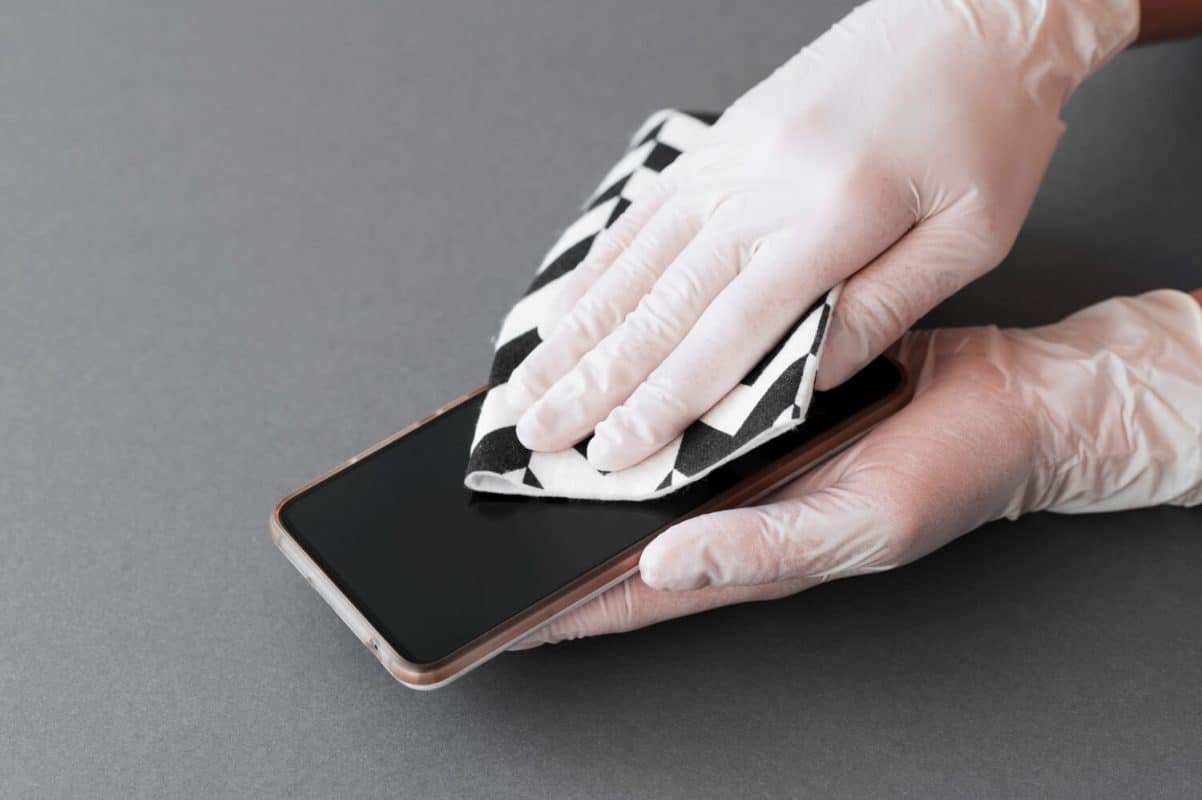Cleaning your phone is essential to maintain good hygiene, as our devices are often in constant contact with our hands, faces, and surfaces. However, it’s equally important to clean your phone in a way that doesn’t harm its sensitive components or compromise its functionality. Proper cleaning methods ensure your phone remains in good condition and continues functioning as intended. Many phones have protective coatings on their screens and surfaces that specific cleaning agents can damage. Using the wrong substances can lead to scratches, discoloration, reduced touch sensitivity, and even internal damage.
Here are some things you should avoid using to clean your phone:
Spray Cleaners: Refrain from using spray cleaners directly on your phone. Liquid can seep into the device through openings like buttons, speakers, and ports, potentially causing internal damage.
Harsh Chemicals: Avoid harsh chemicals like window cleaners, bleach, or ammonia. These compounds can harm your phone’s screen and casing’s protective coatings.
Disinfecting Wipes with Harsh Chemicals: While disinfecting wipes can be helpful, choose ones specifically designed for electronic devices and contain safe ingredients. Avoid wipes that contain strong chemicals like alcohol or bleach.
Abrasives: Avoid using abrasive materials like scrub brushes, rough cloths, or sponges. These can scratch the screen or other parts of your phone.
Paper Towels or Tissues: These materials can leave lint or paper fibers on your screen, affecting visibility and touch sensitivity.
Compressed Air: While compressed air might seem harmless, it can force debris and particles into your phone’s openings, potentially causing damage to internal components.
Water and Excess Moisture: Avoid using excessive water or liquid when cleaning your phone. Even waterproof phones are not resistant to water. The device could get damaged if there is too much moisture present.
Vinegar: While vinegar is a natural cleaner, it’s acidic and can potentially damage the coatings on your phone’s screen.
What, then, can you use to clean your phone safely?
Microfiber Cloth: A soft, lint-free microfiber cloth is one of the best solutions for cleaning down your phone’s screen and other surfaces. It’s gentle and effective at removing fingerprints and smudges. Electronic Device Cleaning Solutions: Specially formulated cleaning solutions are designed for electronic devices.
Electronic Device Cleaning Solutions: Specially formulated cleaning solutions are designed for electronic devices. Typically free of alcohol, these solutions are acceptable for screens and other surfaces.
Isopropyl Alcohol Wipes (70% or less concentration): If you’re using isopropyl alcohol wipes, ensure they have a low alcohol concentration (70% or less). High-concentration alcohol can damage the protective coatings on your phone.
UV-C Sanitizers: Some UV-C sanitizers are made to eliminate bacteria and viruses on the surface of your phone. These devices use ultraviolet light to disinfect without liquid.
Before cleaning, don’t forget to switch off your phone and disconnect any accessories.
Manufacturer-Approved Products: Check your phone’s manufacturer’s website for recommended cleaning products or methods. Some manufacturers provide specific guidelines for cleaning their devices safely.
Conclusion
Gently wipe the screen, casing, and buttons without applying excessive pressure.
To ensure it won’t harm your phone, always test any cleaning method or solution on a tiny, discrete area of your phone first.
Checking your phone manufacturer’s recommendations for cleaning products or methods is also good. They often provide specific guidelines to ensure you use safe cleaning practices that won’t void your warranty. In summary, while keeping your phone clean is essential for hygiene, it’s equally vital to do so in a way that preserves its integrity. By using the proper cleaning methods and avoiding potentially harmful substances, you can ensure that your device remains in good condition and continues to serve you well.

